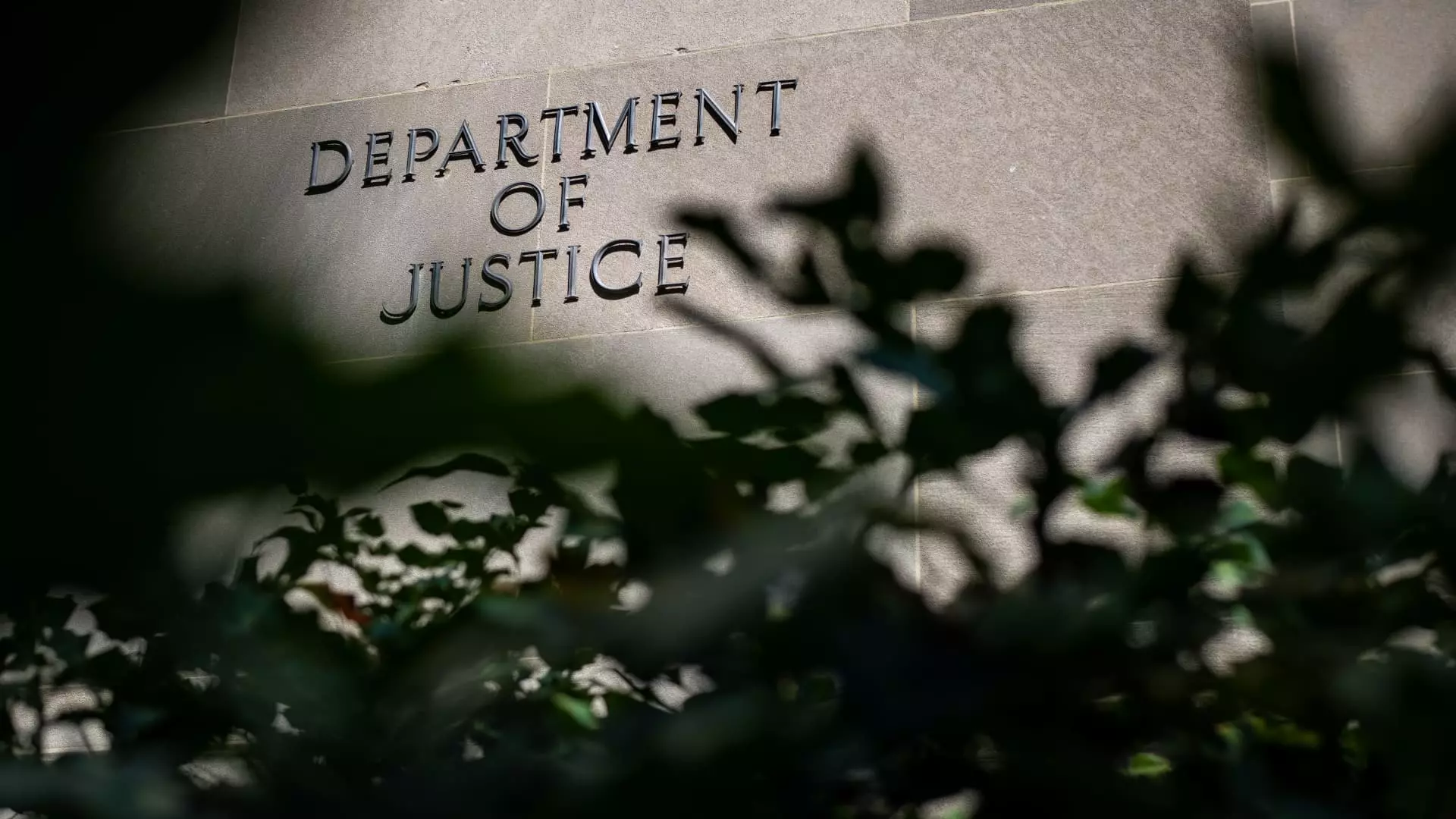In a shocking turn of events, the U.S. Department of Justice has dismantled its National Cryptocurrency Enforcement Team, a move that sets alarm bells ringing across the financial landscape. Deputy Attorney General Todd Blanche’s memo articulates a clear departure from the aggressive crypto oversight established under the Biden administration. Instead of centralized efforts to combat illicit activities tied to digital assets, a decentralized methodology will now prevail, leaving U.S. attorneys in charge of prosecuting matters related to cryptocurrency. This shift raises vital questions about the future of regulatory scrutiny and investor protection in an already volatile market.
The Justice Department’s new strategy emphasizes a woefully narrow focus, prioritizing the prosecution of individuals who exploit cryptocurrencies for severe criminal offenses such as terrorism, human trafficking, and organized crime. While these are critical issues that warrant governmental attention, the broader implications of such a shift are alarming. By narrowing the parameters of enforcement, the DOJ appears willing to disregard the rampant abuses occurring in the cryptocurrency sector, effectively granting a free pass to many of the actors who operate in a regulatory gray zone.
Regulatory Reversals Under Trump’s Administration
The dissolution of the enforcement team isn’t just an isolated decision; it reflects a larger trend of regulatory rollbacks under the Trump administration. With a growing emphasis on deregulation, the changes are not merely practical; they echo a political agenda that favors less oversight—a stance that poses a significant risk for American investors. The new approach emboldens cryptocurrency exchanges and other entities associated with digital asset transactions, shielding them from scrutiny and setting a precedent that can lead to increased violations of investor trust.
The newfound leniency gives dubious players in the digital space a worrying advantage, allowing them to operate without fear of accountability. In essence, this creates a deceptive environment where the façade of digital innovation can easily mask unscrupulous practices. The failure to pursue charges against crypto exchanges and disbanding ongoing investigations that do not align with this new paradigm creates a fertile ground for exploitation.
Personal Interests and Ethical Concerns
Further complicating the issue is the direct connection between the Trump family and the thriving cryptocurrency sector. Allegations of self-interest abound, suggesting that the motivations behind this regulatory shift may be underscored by personal financial incentives. Ventures such as the forthcoming World Liberty Financial, which promises to funnel profits to Trump-associated entities, raise significant ethical concerns. Are we witnessing a push for deregulation that serves personal interests over those of investors? The intertwining of personal gain and public policy creates a troubling conflict of interest that cannot be ignored.
The implications of these connections extend beyond ethics; they question the integrity of the entire regulatory framework. As the lines blur between governance and profit, public trust erodes rapidly, casting doubt on the motives behind the DOJ’s abrupt decision. Lobbying for reduced oversight should never come at the cost of basic investor protections and lawfulness.
A Glimpse into the Future
Despite the dramatic overhaul, the Justice Department still asserts its commitment to prosecuting fraud and serious crimes associated with digital assets. However, the effectiveness of this new trajectory is bound to spark skepticism. With the current downturn in the cryptocurrency market, a focus solely on severe criminal activities inevitably overlooks a myriad of lesser non-compliance activities that have led to considerable investor losses.
The decision to rely on financial regulators for enforcement also raises critical questions about the adequacy of oversight in an industry that thrives on innovation but often skirts responsibility. What happens when financial regulators face their own limitations in terms of oversight or face political pressures that dilute their effectiveness? Without the Justice Department acting as a safety net, investors could be left vulnerable, exposed to an ecosystem ripe for abuse.
The shift away from collective enforcement towards a laissez-faire approach can be framed as a liberating opportunity for innovation, but it also carries enormous risks that need to be clearly understood. The future of digital assets in America hangs in the balance, as the absence of strict regulatory frameworks may hand the reins to those who would exploit them for personal enrichment at the expense of the broader public good.
The stakes are high, and while deregulation may serve a political agenda in the short term, the long-term implications for investor safety, market stability, and ethical governance could be catastrophic.


Leave a Reply